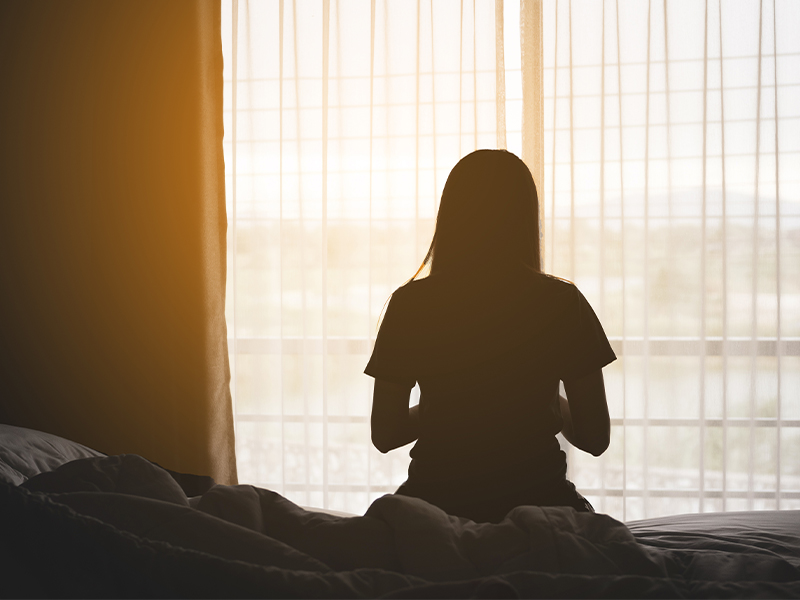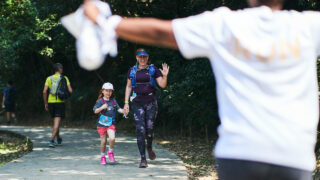Clinical Pyschologist DR QURATULAIN ZAIDI of MindNLife looks at the mental challenges arising from the pandemic – in particular, the impact of isolation on mental health for those facing quarantine in Hong Kong – and where we might turn for some relief.
I have to say, Hong Kong has managed the coronavirus pandemic really well; we’ve had just over 200 deaths due to COVID-19, and the healthcare workers here have been spared the horrific trauma of dealing with the loss of so many thousands of lives, like in the UK, the US and elsewhere.
At the same time, however, it has become incredibly challenging to travel to and from Hong Kong as a resident (forget tourism!) because of the focus on achieving zero cases. Instead, we have a 21-day mandatory quarantine in a hotel – the longest in the world – which not only comes at an astronomial financial cost, but also involves a lack of access to fresh air for its duration because of the unavailability of suitable hotels in Hong Kong.
Then, in the most recent addition to this already traumatic and mentally detrimental return, if there’s positive case in the hotel you’ve paid to stay in for 21 days, you need to enter a quarantine facility for another 21 days.
In the short term, almost everyone can cope with the border closure, even if most of us didn’t go home for Christmas 2020 and were hoping to be able to see our loved ones in the summer.
But what about the long-term impact of these safety measures, now almost two years into the pandemic? The financial impact is one thing, but the emotional and psychological cost of the trials of travel – in particular, on the mental health of someone returning from a funeral or family crisis – must not be ignored.
Quarantine vs self-isolation
Quarantine is defined as the separation and restriction of movement of people who have potentially been exposed to a contagious disease to ascertain if they become unwell, so reducing the risk of them infecting others. There are some fairly clear guidelines for preserving people’s safety and wellbeing in quarantine situations. For example:
- Information is key. People who are quarantined need to understand the situation, and it certainly shouldn’t be used as a measure to name and shame anyone.
- Effective and rapid communication is imperative; instructions should clearly explain what is to be expected, why it is essential, and, most importantly, when it will end.
- Supplies (both general and medical) need to be provided. Most importantly, the quarantine period should be short, and the duration shouldn’t be changed unless in extreme circumstances, otherwise the mental and emotional trauma of this will be long-lasting. I’m seeing an increasing number of patients who are suffering severely due to sudden changes in their quarantine circumstances.
The imposition of restrictions of this nature has adverse effects, and it’s no surprise that scientific studies are now clearly showing that the altruistic choice of self-isolating is a less damaging alternative to quarantine.
What is “ambiguous loss”?
For people in Hong Kong, the past two and a half years have been filled with anguish and uncertainty. With prolonged uncertainty comes suffering, and all of us in the world are suffering from a sense of “ambiguous loss”.
Ambiguous loss is a term that was coined by American educator and researcher Dr Pauline Boss with regards to situations of unresolved mourning. She identifies two types of this “unclear” loss: The first is when a person is physically present but psychologically absent – this might be the case with dementia, for example. The second type is when there is a physical absence but a psychological (emotional) presence.
I recently heard this concept explained very well on a podcast, and I understood why I’m feeling a constant sense of grief and mourning; it’s part of the ambiguous loss that we’re all experiencing right now for a world that is still somewhat physically present but doesn’t resemble itself.
There is a sense of collective grief – one that we cannot fully mourn – for the world that we knew; over the plans that were made, the weddings that got cancelled, the birthdays that didn’t get celebrated, the anniversaries that weren’t even looked at. Then there are those who may have done everything in their power to get to the funeral of a loved one, only to come back to a hotel room in isolation, at a time when the need to be with family is at its greatest.
This sense of isolation is naturally leading to an increase in mental health challenges globally. The global prevalence of issues such as depression has risen – by as much as 50 percent in some cases. Here in Hong Kong, I’ve seen people who have come out of quarantine and are suffering from PTSD, sleep problems and, in some cases, extreme psychological distress.
What can we do?
What we have, then, is prolonged uncertainty, ambiguous loss and collective grief. And yet, as human beings, we also have tragic optimism. Tragic optimism is the ability to maintain hope and to find meaning despite the pain, the loss and the suffering.
For me, this means creating a sense of connectivity and community. Here are some words of wisdom on the matter from prominent Belgian psychotherapist Esther Perel.
- “We have to prioritise self-care. This is not just being mindful; when there is collective trauma, self-care means tapping into the resources of others.”
- “To counter isolation, collapsed boundaries and a loss of contextual living, it’s important that we actively create routines and rituals that demarcate functional spaces, roles and states of mind.”
- “Check in with colleagues, friends and contacts to learn what they are experiencing and feeling. Asking questions that meet people where they are at this moment helps to strengthen our own emotional and relational health and that of our particular team; it creates a sense of community and builds trust and accountability amongst each other.”
Yet I also feel there should be more awareness about the unforeseen long-term mental, emotional and psychosocial impact of lockdowns, including here in Hong Kong; with this, it’s hoped there will be a shift from the focus on zero cases. This virus and its variants are here to stay; we have to learn to live with it – and without making it worse for humanity than it already has been.
Dr Zaidi is a British-registered clinical psychologist in Hong Kong who works with individuals, couples and families in her private practice in Central, and as a mental health consultant for a number of NGOs and international corporations.
2521 4668 | info@mindnlife.com
mindnlife.com
This article first appeared in the Autumn 2021 issue of Expat Living magazine. Subscribe now so you never miss an issue.







